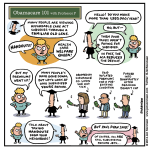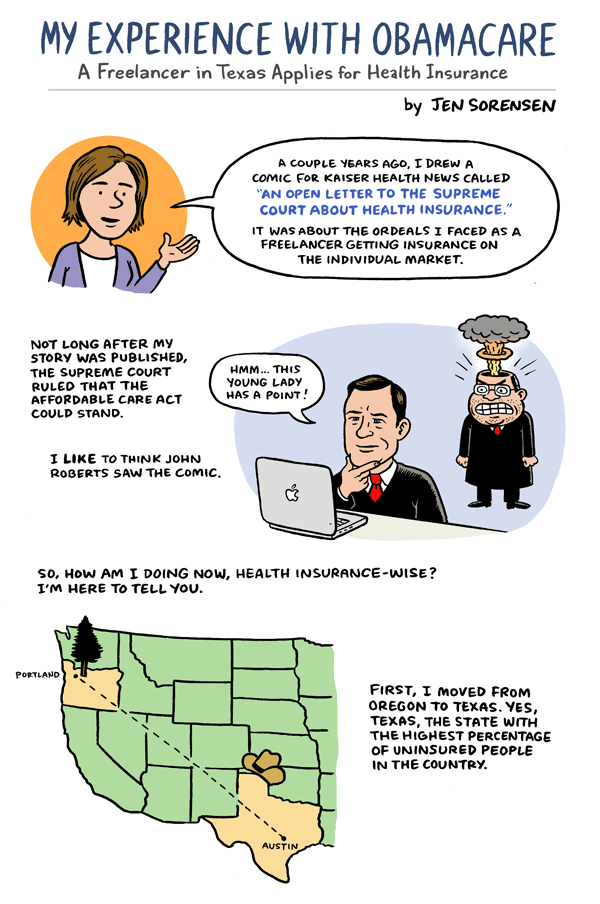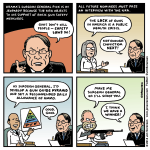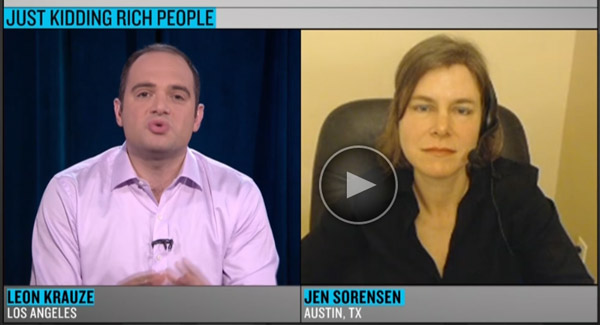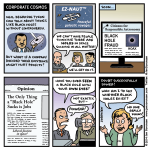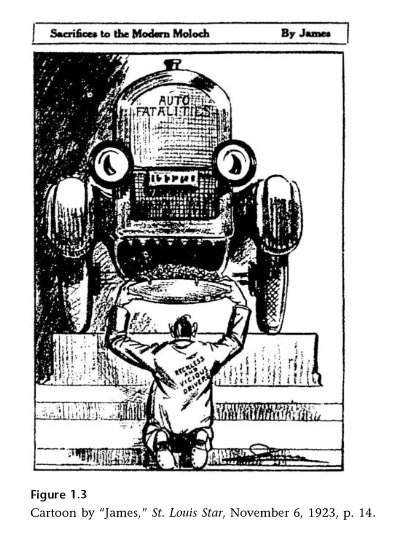The Sorensen Monologues
Archive for March, 2014
Obamacare 101 with Professor P
While I’ve received many encouraging comments on my recent comic for Kaiser Health News (“My Experience With Obamacare”), I’ve been struck by certain accusations that suggest widespread misinformation about how the Affordable Care Act actually works.
Clearly there’s a massive effort on the right to paint the ACA as a big, bad welfare program that’s transferring money from hardworking folks to undeserving scapegoats of some sort. Indeed, this seems to be the only lens through which many conservatives seem capable of looking at the world. (Not that I don’t support a strong social safety net.)
Here’s how the funding of ACA subsidies actually works: The cost is covered by a combination of cuts to Medicare overpayments to private insurers, cuts to the growth rate of Medicare reimbursement to hospitals, taxes on companies that stand to benefit from the ACA (such as medical device makers and insurance companies), and a tax increase on the top 2%. More info here and here.
So, unless your household is making approximately $250,000 a year, your tax dollars are not marked for the subsidy program. Note that federal income taxes for the rest of us have not gone up.
For the record, I pay a lot of money in taxes, from the federal income tax to the double payroll taxes faced by freelancers on their Schedule C income (both the employer and employee portion), sales taxes of 8.25%, and Austin’s very steep property taxes. I’m funding public schools even though I have no kids, which is something I don’t mind doing. I’m also funding plenty of things I don’t support – drone warfare being one example.
I do empathize with those people stuck with premium increases they can’t afford. This seems to be partly a function of the high cost of living in certain places — another complication from America’s soaring economic inequality. But I wonder how many of the people complaining about their premiums (and shaming those of us who qualified for tax credits) supported the public option when it was on the table. A single-payer system is a far more efficient way of providing insurance – it’s what I’ve always supported, and would prefer. As far as I’m concerned, there’s no need for private health insurance companies to exist at all; they are bureaucratic middlemen whose profitability runs contrary to the job they are supposed to do.
I have to admit, though, that I’m kind of enjoying the spluttering of wingnuts who pose as champions of entrepreneurship, risk-taking, and rugged individualism, as they tie themselves into knots opposing a law that frees people to pursue those very activities. Some of them are even trying to cast people like me as irresponsible, erroneously suggesting that those who get insurance through their employer are somehow subsidizing those of us who work for ourselves.
It’s more like the other way around. In addition to the double payroll taxes enjoyed by the self-employed, we don’t receive health care benefits tax-free the way employees of a company do. This is a subsidy for the traditionally employed. We can take a deduction for our premium payments, but the income we use to pay them is still subject to taxes. The ACA is a step toward making the individual market more like a company insurance pool.
Here’s a great article about other subsidies enjoyed by many critics of the ACA.
Yes, Obamacare is an imperfect solution to an enormous health crisis plaguing the richest nation in the world, but don’t blame the guy who actually tried to do something about it. Instead of hurling invectives at those of us who finally have some peace of mind after agonizing over health insurance for years, why not focus your ire on extreme price-gouging by hospitals — $137 for a $1.00 IV drip bag, anyone?
In short, if you’re not making over $250,000 and you’re spewing this “I’m subsidizing you” nonsense, kindly put a sock in it. If your premiums went up, I’m sorry — but others were subsidizing them before, sometimes with their lives. If you are making over $250,000, you should support a program that makes America a fairer and better country. It’s a clear step in the right direction, if not the perfect solution.
My Experience With Obamacare: Comic for Kaiser Health News
I’ve drawn a follow-up to my earlier comic for Kaiser Health News about being a freelancer in search of decent health insurance. This one is about my experience getting covered through the Affodable Care Act.
The NRA interviews Surgeon General Candidates
You know your country has gone off the deep end when a Surgeon General nominee encounters fierce political opposition because of this:
On the local level, the NRA has tried to bar pediatricians from counseling parents about the risks of keeping guns at home. The American Association of Pediatrics recommends that doctors begin to talk to parents about gun safety even before their baby is born and continue the conversation yearly, just as doctors talk to parents about the dangers of swimming pools and the importance of bicycle helmets. Florida passed a gag law in 2011; crafted by an NRA lobbyist, the bill forbids doctors from “making written inquiry or asking questions concerning the ownership of a firearm or ammunition by the patient or by a family member of the patient.” A district court ruled the following year that the law restricted physicians’ rights to free speech and the case is now in the appeals process. Murthy’s opposition to pediatrician gag laws was one of the reasons cited by the NRA and Rand Paul in their attempt to disqualify him.
TV Appearance on Fusion Network
I recently appeared on Open Source with Leon Krauze to discuss America’s extreme economic inequality. The show is on the Fusion Network, a new cable channel from ABC News and Univision.
Political cartoonists are rarely interviewed on TV, which is strange when you consider how frequently opinion columnists or obscure academic authors make appearances as talking heads. Thanks to Fusion for having me as a guest.
No Fly List comic for ACLU
One of the projects I’ve been working on is an comic for the ACLU about innocent people trapped on the No Fly List. 
(Click to read the whole story on the ACLU website)
Working on this story (based on actual client testimony) was a real eye-opener. As things stand now, these people have alarmingly little recourse to clear their names.
Oral arguments in the ACLU’s lawsuit Latif v. Holder took place this week in Portland, OR.
The Herblock Prize!
The past month or so has probably been the busiest of my entire career as a cartoonist. In the meantime, I’ve been remiss about updating the blog, so I’m going to try to get caught up here with a few posts.
One major development is that was named the recipient of the 2014 Herblock Prize, a prestigious editorial cartooning award from the Herb Block Foundation. (I had been named Finalist in 2012.) It’s a humbling experience, being part of the legacy of such an influential cartoonist who was so consistently on the right side of history. I’ve received more kind emails and comments than I can keep up with, which has been truly heartwarming.
Here’s additional coverage from the Washington Post.
Corporate Cosmos
While working on this cartoon, it had not yet come to my attention that Stephen Hawking had just released a new paper in which he declared “The absence of event horizons mean that there are no black holes – in the sense of regime from which light can’t escape to in finity. There are however apparent horizons which persist for a period of time.” National Geographic and other outlets ran with the somewhat sensationalist quote of Hawking saying “There are no black holes.” However, as this handy PBS article explains:
To be clear, Hawking was not claiming that black holes don’t exist. Astronomers have been observing black holes for decades, said Joseph Polchinski, theoretical physicist at the Kavli Institute for Theoretical Physics at the University of California, Santa Barbara.
What Hawking did was propose an explanation to one of the most puzzling problems in theoretical physics. How can black holes exist when they seem to break two fundamental laws of physics — Einstein’s laws of relativity and quantum mechanics?
On a different note, an astronomer emailed me to point out that “it is actually much harder to fall into a solar mass black hole than the Sun itself because the former is just so small.” Which is an interesting point, to which I say the CEO of EZ-Naut is more concerned with appearances and marketing than scientific reality.
Great podcast on the origins of “jaywalking”
In response to this week’s cartoon on pedestrian rights, a reader sent me a link to this fascinating article and podcast about city streets in the early 20th century. The streets used to be for people, many of whom resented the introduction of cars, which had a tendency to slaughter children. Automobile interests promoted the concept of “jaywalking” to ridicule pedestrians — a belittling term with connotations of “country bumpkin.”
Coincidentally, one of the hosts of the podcast (Jesse Dukes) is someone who was at the University of Virginia at the same time I was. I didn’t know him personally, but I’m pretty sure we crossed paths during my day job years at the library.

